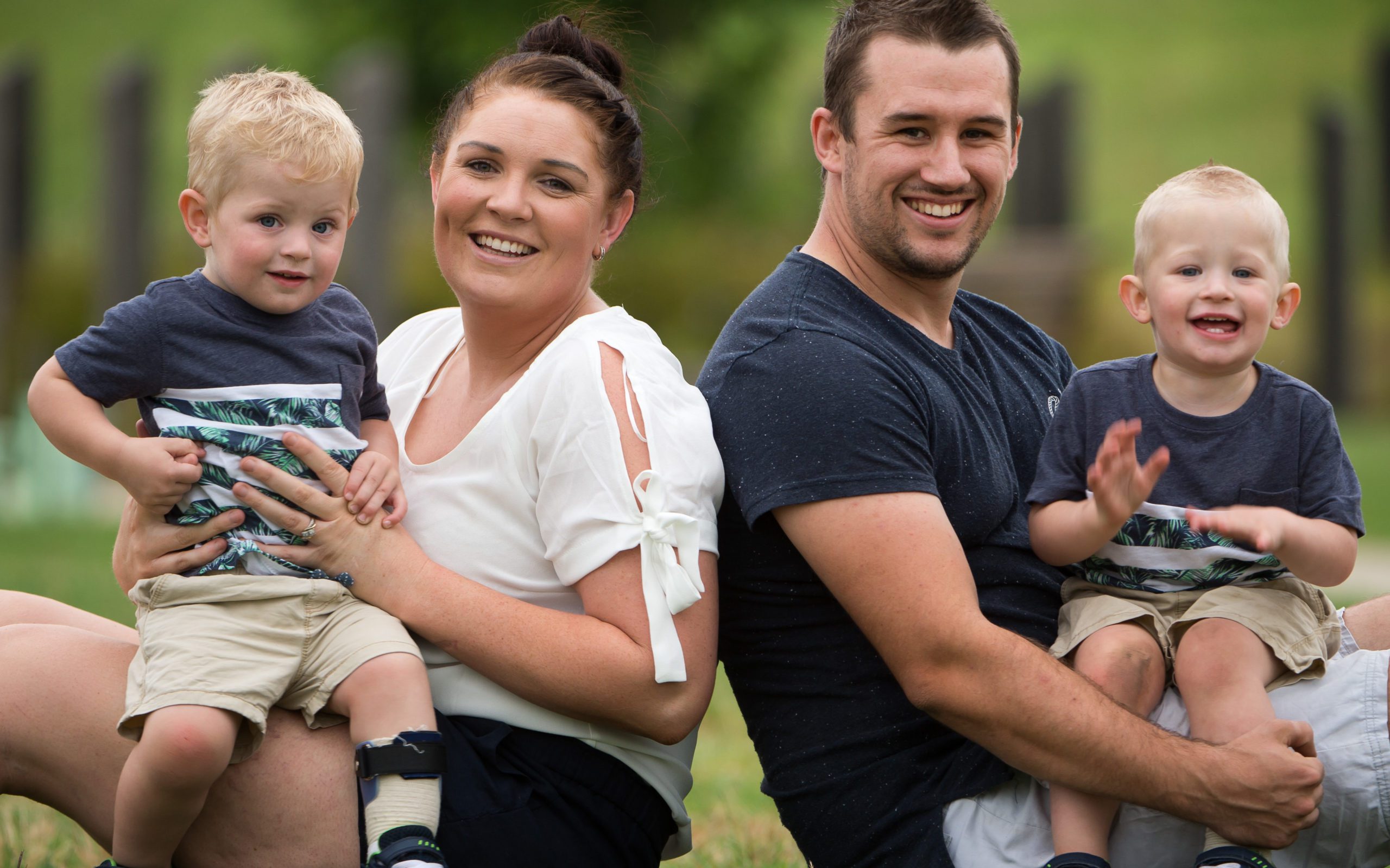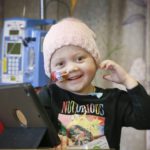Bailey spent 11 days in intensive care and the family was referred to The Royal Children’s Hospital’s Childhood Stroke Program where Dr Mark Mackay “made everything less daunting”.
Belinda said Dr Mackay “explained things in a way that made us more relaxed and gave us hope”.
As the twins approach their second birthday it is mainly physical differences that mark their development. Bailey has been diagnosed with cerebral palsy which affects his walking and some movement on one side of his body. He also has some vision problems.
Although Bailey does need constant extra supervision, nothing stops the rough and tumble of daily toddler life for the twins. And the family’s on-going association with the Childhood Stroke Program provides peace of mind with help and advice whenever issues rise.

The program is an international leader in childhood stroke care and research. Dr Mackay said it is the third largest contributor of data to the International Stroke Study Group’s registry that involves 88 centres worldwide. The RCH is the only Australian paediatric institution that meets all National Stroke Foundation criteria for a comprehensive stroke centre.
“We know (from feedback) that we are having a direct and positive impact on the families we see, but through our research we are also having a huge impact internationally,” Dr Mackay said. “This research translates into helping many other people too.”
Funded by the Good Friday Appeal, the program was set up in 2004 by Dr Mackay, a paediatric neurologist. In 2011, also due to the support of the appeal, the nation’s only Stroke Nurse Coordinator, Belinda Stojanovski, was employed.
The pair work seamlessly together to improve the outcomes for children affected by stroke, providing medical, practical and emotional support for the young patients and their families.
“When families are referred to our clinic Mark gives them all the technical information then I step in to try to answer their questions and provide the support they need to deal with the different hospital departments and link them into rehab,” Belinda said. “We are really the link between the families and the hospital.”
In 2012 the Childhood Stroke Program had 13 referrals but that had increased significantly to 41 in 2016. There are about 400 families on the program’s registry.
The program also aims to improve care by educating medical, nursing and allied health professionals in best practices; and to improve awareness of childhood stroke in the community.
Paediatric stroke facts:
- Stroke is among the top 10 causes of death in childhood with the highest mortality in the first 12 months of life
- Stroke affects one in 2300-5000 newborns
- The cause of stroke in newborns is usually unknown
- Every year about two children in every 100,000 will have a stroke
- 50-85% of survivors of stroke will be left with long term problems which may include seizures, physical disability, speech or learning difficulties
Photos: Jay Town



